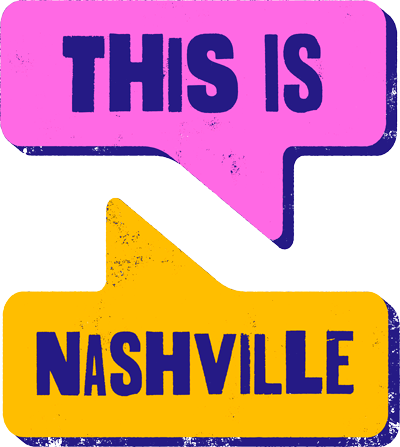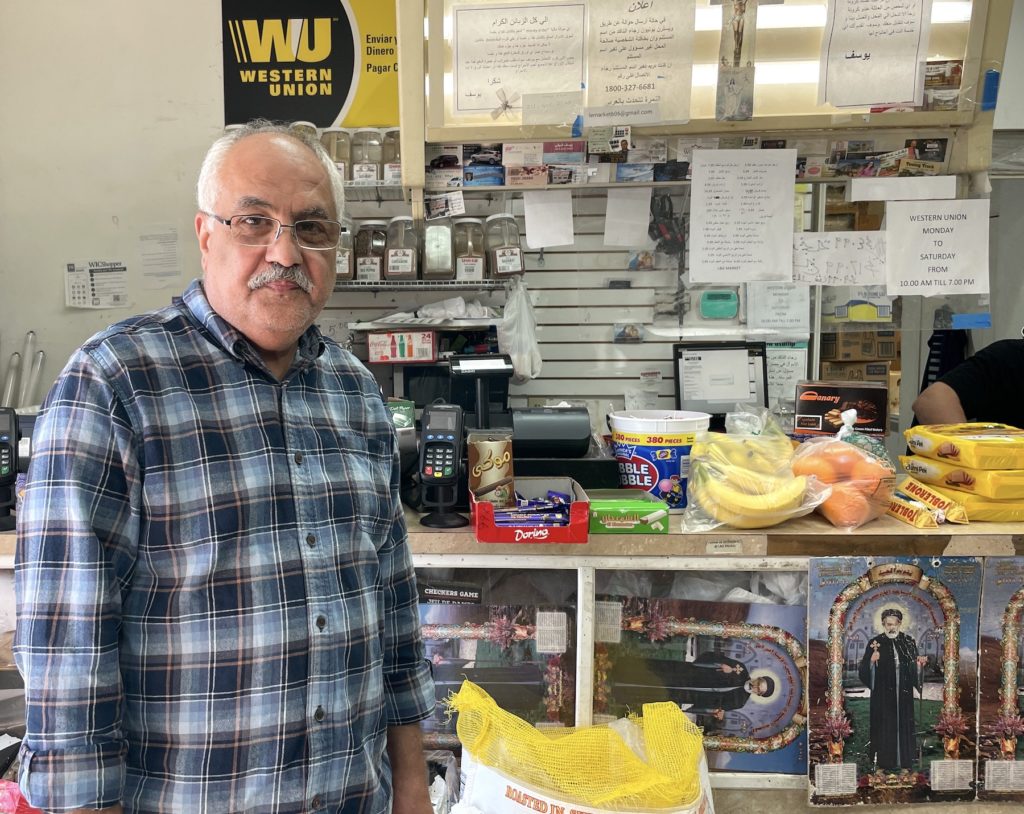
Across Nashville, tens of thousands of Muslim residents will soon conclude the holy month of Ramadan.
For many, this special time provides a chance to deepen connections and understanding among neighbors. But it can also make for a moment when new arrivals to the United States find themselves navigating adjustments to their traditions.
On the Friday before Eid al-Fitr, This Is Nashville explored how Ramadan is celebrated in Middle Tennessee. As part of that reporting, contributor Laura Dean collected a cross-section of moments from across the city.
Free meals for all comers
During the holy month, Muslims who are fasting refrain from eating and drinking from dawn to dusk. Once the sun sets, dozens of local families have been enjoying free meals handed out by A and H Food Mart on Murfreesboro Pike.
That’s where Ibrahim Ali prepares hearty fare like chicken with rice, beans and carrots that he ladles into Styrofoam boxes each evening. For the last 25 years, during every night of Ramadan, he has served free iftar — the meal that fasting Muslims eat at sunset to break their fast.
Ali says giving out food is a religious duty. But he also just wants his neighbors to have a good meal.
“Some people say they like my food but they can’t buy it, so I make it free for them,” he says.
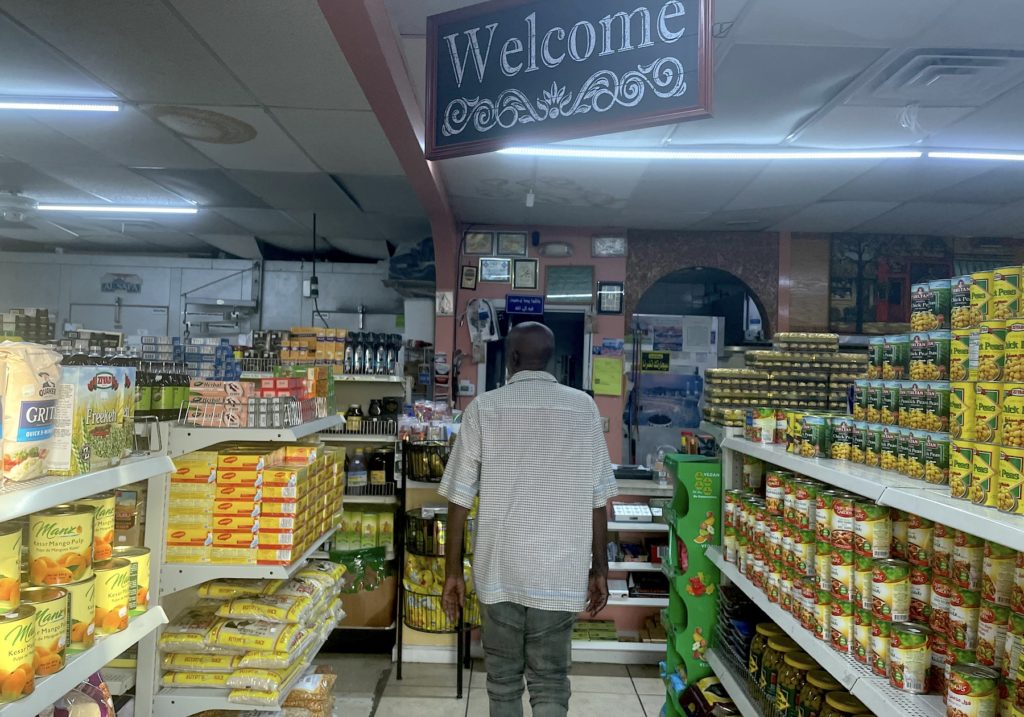 Laura Dean WPLN News
Laura Dean WPLN NewsA shopper visits A and H Food in Nashville, where owner Ibrahim Ali provides free iftar meal boxes every night during Ramadan.
As customers trickle in, most head right to the counter, where Ali directs them to take as many meal boxes as they need. He gives out at least 35 a night.
The people he serves come from all over — from different parts of Africa, from Mexico, Turkey, Pakistan and his American neighbors — and he’s committed to feeding everyone.
“If they’re fasting, OK. If he’s not, OK … I can’t let him see the food is free and not serve him,” he says.
Ali adds that the month of Ramadan reminds him of how much he misses his 16 brothers and sisters back in Palestine. But it’s also a time when he appreciates his community here.
Thinking of home
Meat sizzles on the stovetop in the home of Zeinab Amin. She’s with Rasha Karakira, an old friend from Alexandria, Egypt. They moved to Tennessee in July, and this is their first Ramadan in the US.
Half an hour before sunset, Rasha is frying meat with one hand and stirring the molokheya — a leafy vegetable, popular in the Arab world and served as a stew — with the other.
She’s also made a traditional Ramadan sweet called atayef, a crescent-shaped pastry stuffed with raisins and chopped nuts. In Egypt, she usually buys it. But this year she learned how to make it herself from a YouTube video. While some shops do sell atayef in Nashville, neither friend has a car, so getting around is a challenge.
At the exact moment of sunset, a call-to-prayer app goes off on Rasha’s phone. She hurries off to call her husband, who is working at a factory. He doesn’t like to have his app go off at work, so she calls each day to let him know when to break his fast.
It’s their first Ramadan away from home and they miss this time of year in Egypt. They can get a glimpse — like when Rasha pulls up a video of friends in Egypt getting ready to celebrate. She says that during this time of year, back home, “you feel like everyone in the street is one family.”
Special deliveries
At L and E Market, Yousief Yousief runs the cash register at the height of the after-school rush. He’s been in the U.S. for almost 40 years and makes it his business to help new arrivals like Rasha and Zeinab.
As soon as you walk in, you can tell his store is a community hub. Some call him “Am Yousief,” a term of endearment similar to “uncle.”
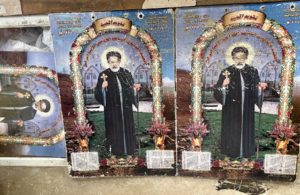 Laura Dean WPLN News
Laura Dean WPLN NewsImages of a Coptic saint who dedicated his life to helping the poor hang at the counter of L and E Market.
He and his family are Coptic Christians. They don’t celebrate Ramadan. But his daughter has organized the delivery of Eid boxes out of his store. Those help low-income Muslim families celebrate the end of the month of fasting.
Yousief has always tried to stock products for his Muslim neighbors. The meat he has is always halal, as is the sausage he makes in the store.
But the help he offers extends far beyond the foods he stocks. From reading prescription labels to advising people on how to find lawyers, Yousief provides many services.
“It’s kind of like community and grocery and business and helping. It’s a lot of things.”
New traditions
For Aveen Misto, the only Ramadan tradition she’s known is growing up here in Tennessee. She’s been helping at her father’s grocery store, Newroz Market, for as long as she can remember.
Aveen says fasting in school wasn’t always easy.
“It felt like a very small thing that no one really understood or knew about so … other kids didn’t … understand why we had henna on our hands, or why we couldn’t drink water or eat food until a certain time.”
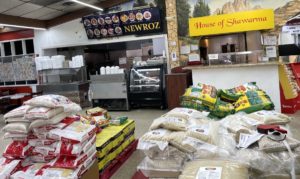 Laura Dean WPLN News
Laura Dean WPLN NewsFor decades, Newroz Market has provided international grocery items in South Nashville.
But now, she says, a number of Muslim parents she knows are trying something new. She says they want to, “make it so the kids don’t feel like they’re missing out on the American holidays, like Christmas.” So people have started to do things like a countdown to Eid. And gifts for kids that morning. And special decorations around the house.
Although there aren’t any young children in Aveen’s family anymore, they too are trying something a little different when it comes to gift-giving:
“Our family’s doing ‘secret servant,’ ” she says, laughing, “so everyone’s picked a name and someone has to buy somebody a gift to make it more fun.”


